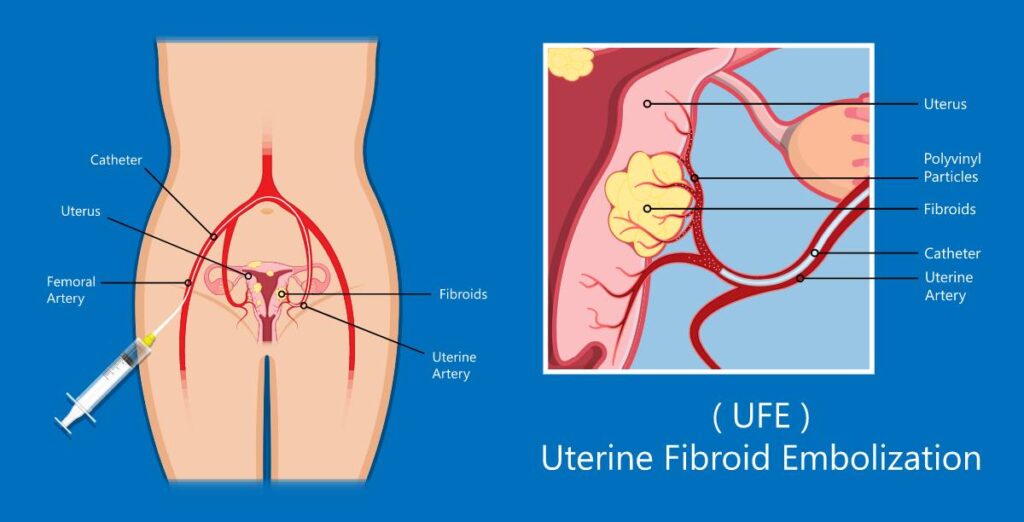Why Should I Exercise?
It is a well-known fact that exercise is beneficial to us in many ways. It improves heart health, prevents diabetes and boosts our metabolism. Exercise also plays a key role in improving women’s health by:
-
- Enhancing endorphins which help regulate our mood and reduce pain
- Strengthening our cardiovascular system
- Balancing our estrogen and progesterone hormone levels
- Reducing our Body Mass Index (BMI)
Does Exercise Affect My Hormones?

Fibroid development is often linked to estrogen and progesterone levels in women’s bodies. These hormones work together to regulate our menstrual cycles. Most women discover they have uterine fibroids during pregnancy or perimenopause when their hormone levels are elevated. Others notice a decrease in fibroid growth or symptoms during menopause when their hormone levels are low.
Exercise affects estrogen and progesterone levels within women’s bodies by moderating them. Regular exercise may help to prevent the growth of fibroids by reducing hormones and the fibroid activity they often trigger. Studies also indicate that a higher Body Mass Index (BMI) is linked with fibroid development. While regular exercise works to lower our BMI, it can also decrease the incidence of fibroid growth.
Does Exercise Shrink Fibroids?

Regular exercise may help prevent Uterine Fibroids from growing. However, it does not reduce the size or control the symptoms associated with the fibroids that you already have. There is however, a highly efficient and effective minimally-invasive way to shrink fibroids through Uterine Fibroid Embolization (UFE).
What is Uterine Fibroid Embolization (UFE) Treatment?

UFE is a non-invasive way to treat uterine fibroids safely and effectively. You maintain fertility while finding relief from fibroid symptoms. Once treated through UFE, fibroids have a zero incidence of regrowth. Fibroids rely on a blood supply to grow and thrive. Embolization cuts off this blood supply, which shrinks and ends fibroids.
Although exercise is the key to prevent and slow the growth of new fibroids, UFE ensures you remain symptom-free. To determine if you are a candidate for Uterine Fibroid Embolization contact Dr. Neel Patel at The Atlanta Fibroid Clinic. Non-surgical relief from your fibroid symptoms is within reach. Find out how you can be symptom-free with UFE.
